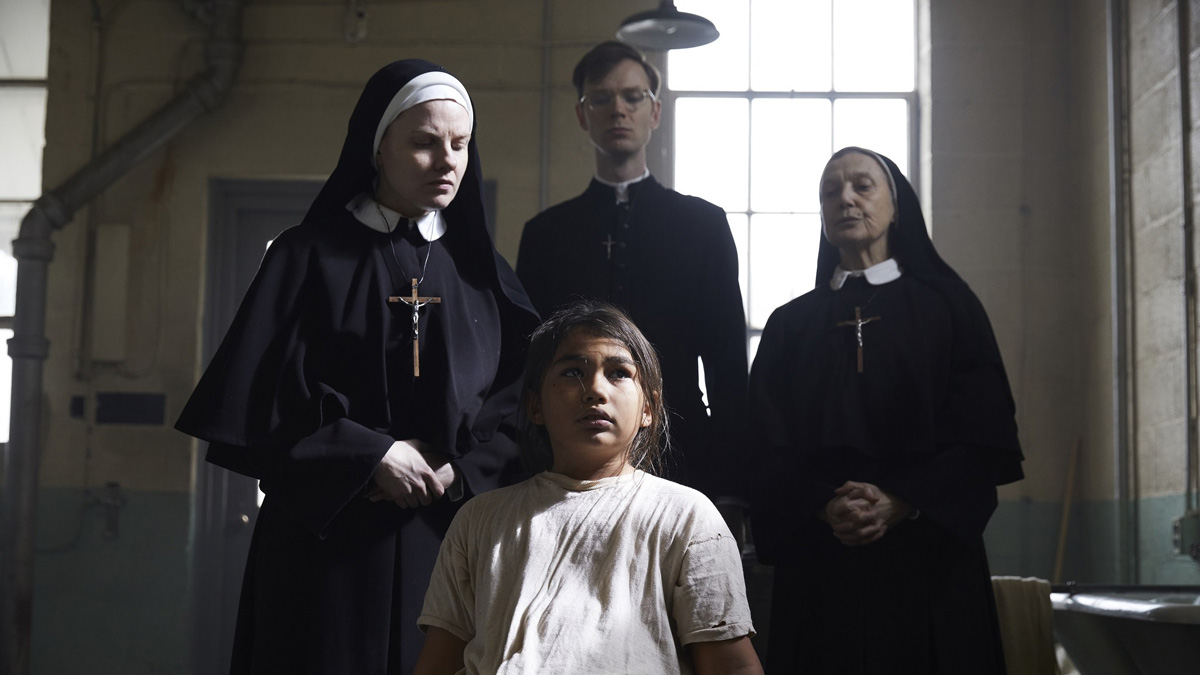Film Review: Indian Horse
 supplied
suppliedIndian Horse
Directed by Stephen S. Campanelli
Starring Sladen Peltier, Forrest Goodluck, and Ajuawak Kapashesit
Debuted September 15, 2017 (TIFF 2017)
In dramatizing perhaps the most malicious and toxic phenomenon in Canadian history, Stephen S. Campanelli captures the harrowing and traumatic story of Aboriginals in the era of the Indian residential school system in Indian Horse with emotional poignancy and unmistakable sincerity.
Adapted from the Richard Wagamese novel, the film follows an Ojibway orphan named Saul Indian Horse who is captured by government authorities in 1956 and placed in the St. Jerome Indian Residential School in Ontario. Among other Aboriginal children, he is forced to speak English, convert to Christianity, and erase his cultural heritage. Throughout the beatings and humiliations and suicides, Saul finds solace in the game of hockey, where he finds he is naturally skilled and incredibly proficient. The film also follows Saul into his adolescence and adulthood as he plays in minor league hockey, deals with homegrown racism and alcoholism, and confronts the true extent of his childhood trauma.
Hockey, as the quintessential Canadian pastime, is the mechanism by which Saul survives the residential school system and his trauma. He begins to see and understand hockey much like the ancient lessons of his elders, the chaos and balance of the universe and the interconnectivity of all being. All of the performances of Saul Indian Horse from childhood to adulthood deserve praise and recognition for their incredibly melancholic and tragic quality that hold the film together. One detractor, though, is the sometimes cartoonishly evil attitude of the priests and nuns, which ironically diminishes its effect and leaves no room for countering their justifications. However, this does not dampen the film, as Campanelli draws his expertise in cinematography to capture the terrifying injustices of the school and the violent aftermath of the world outside.
Indian Horse could have wasted its emotional potential by resting its laurels on melodrama, but it has much more courage to detail the lasting legacy of the residential schools upon entire generations. You’d be forgiven for thinking otherwise, as by the end of the first act, it looks to be an extremely typical “coming-of-age” story. His exceptional hockey skills allow him to escape the school, and Saul is adopted by an Aboriginal family on the reserve and joins the local hockey team, finally finding a family to spend the rest of his life with. His trials are over; his perseverance is rewarded; his trauma is finalized.
However, trauma is special. Trauma is different. Trauma is permanent. It follows you everywhere you go. It sticks in your throat. It boils in your stomach. It never stops ringing in your ears. It is only when the adult Saul remembers the halls of the abandoned school and rediscovers his homeland that he finally begins to cry, and his process of healing begins. Indian Horse makes its political goals clear to acknowledge the history and ongoing legacy of the Indian residential school system in Canada and to encourage the cultural process of truth and reconciliation for all Canadians. And in this noble endeavour, Indian Horse is brutally told, beautifully executed and passionately driven, a worthy inclusion into the realm of Canadian cinema.
The Edmonton International Film Festival is running from September 28th to October 7th at the Landmark Cinemas 9 City Centre.




